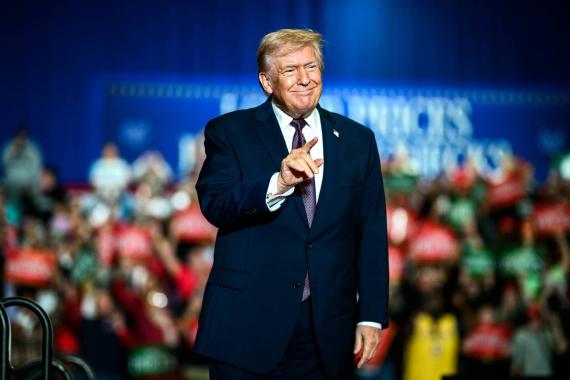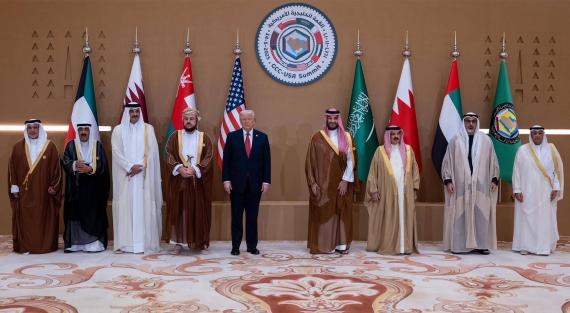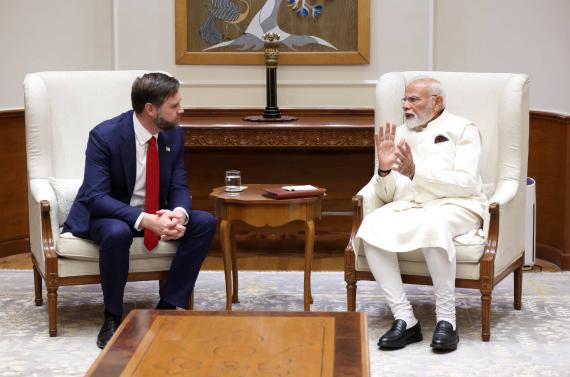The ignorance of one voter in a democracy impairs the security of all.
At a glance
- Donald Trump has clearly won the presidential election and can govern with a majority of his Republicans in the Senate.
- Election results show shifts in voter groups.
- Domestic issues such as immigration, abortion rights and the economy dominated the election campaign.
- Trump's “America First” foreign policy will change relations with Europe and pose a new challenge to European security policy.
Content
1. Election outcome clearer than expected
2. Domestic issues dominate the election campaign
3. The congressional majority is equally important
4. We are following the change of power in the USA from many perspectives
5. Publications, events and media contributions on the topic
Election outcome clearer than expected
Most pollsters had predicted a neck-and-neck race, but in the end the expected deadlock did not materialize: Donald Trump won the US presidential election on November 5, 2024 surprisingly quickly and clearly. His “Make America Great Again” message resonated with an electorate that is not experiencing the economic upturn, is suffering from high price increases, and is fearful of foreign infiltration. Vice President Kamala Harris failed to convince a majority that she could credibly represent a new beginning despite her disciplined election campaign. Trump mobilized not only his traditional electorate but also new groups of voters for the Republicans, including Latinos and African American men. He was able to make gains across the country, either by extending his lead or narrowing the gap with Kamala Harris.
Domestic issues dominate the election campaign
For a long time, it seemed the 2024 presidential election would mirror the one from four years ago, particularly with the main contenders: Joe Biden and Donald Trump. Both secured enough votes in the primaries. Donald Trump was officially confirmed as the Republican candidate at the party convention. The Democrats, however, faced an unexpected turn of events: after a shaky performance in a televised debate raised doubts about Biden’s capabilities, he ended his candidacy in July.
President Biden nominated Vice President Kamala Harris as the new candidate. Leading Democrats followed suit, and Harris easily secured the necessary delegate votes for the nomination. For her, it was about presenting herself as an independent candidate while also highlighting the successes of the Biden-Harris administration, such as extensive reform laws and strong economic performance.
For Donald Trump, the goal was to overcome the stigma of his defeat four years ago. To him, the election defeat was a fraud. He remains committed to an “America First” policy, aimed at safeguarding America’s borders and enhancing the country’s independence. This approach involves scrutinizing foreign aid to other nations and questioning alliances like NATO.
The congressional majority is equally important – even in foreign policy matters
Even though the presidential election attracts the most international attention, a new Congress has also been elected, and the majorities there are equally crucial. All 435 seats in the House of Representatives were up for election, along with one-third of the 100 Senate seats. Before election day, it was already clear that there could be a change in the Senate majority. Several Democratic senators were up for re-election in states now considered predominantly Republican. Indeed, the Republicans managed to flip the Senate majority. This shift will make governing much easier for President Trump. For example, the Senate confirms cabinet members and ambassadors. The Senate also elects federal judges, which is very important for conservative groups. With a majority, the Republicans can shape the Supreme Court and other federal courts for decades, as their members are appointed for life.
We are following the change of power in the USA from many perspectives
The Konrad-Adenauer-Stiftung places great importance on the transatlantic partnership, NATO, and cooperation with the United States as crucial guarantees for Europe’s security. We closely monitor the election campaign, outcomes, and further developments and analyze the situation with the assistance of American and European experts. Our U.S. office is organizing dialogue programs and observation trips involving German experts and politicians to foster a deeper understanding of the political process. Additionally, educational, and online events will be available.















